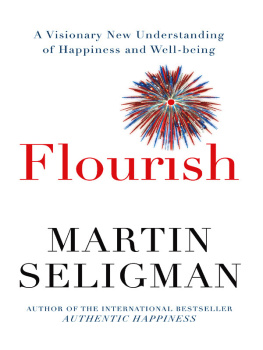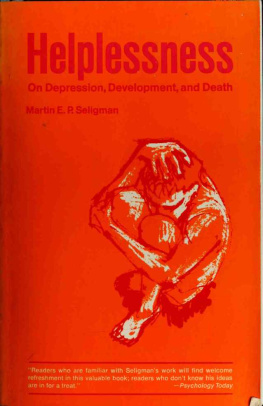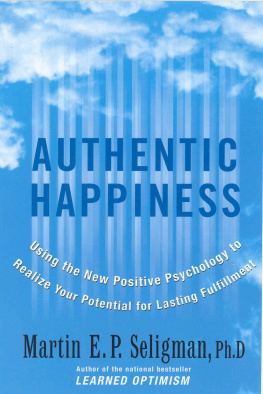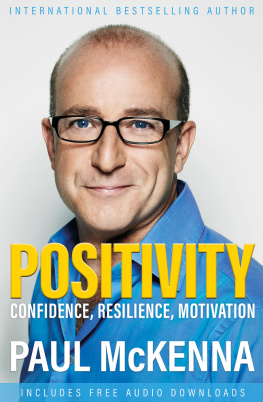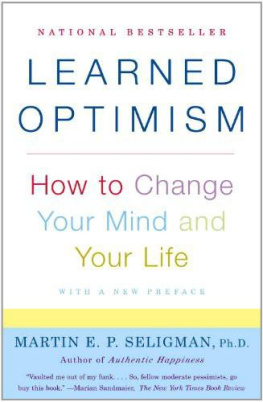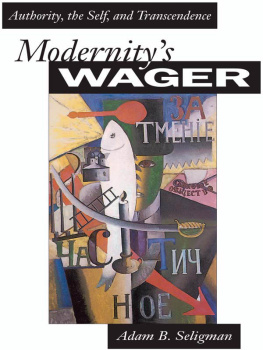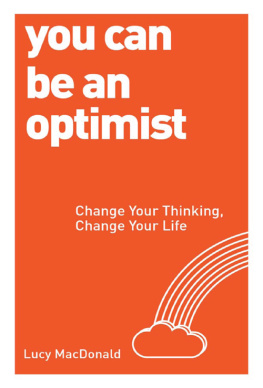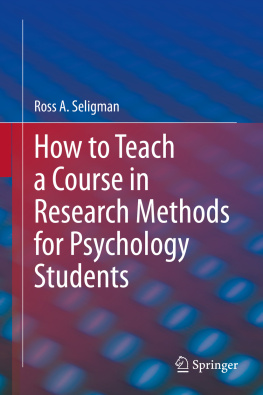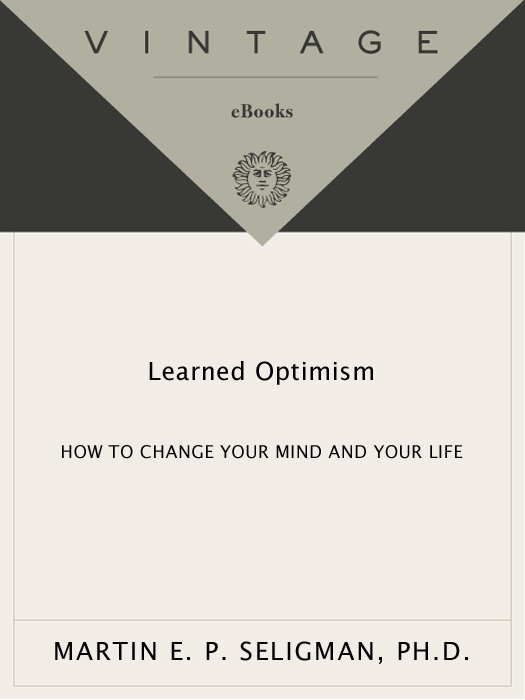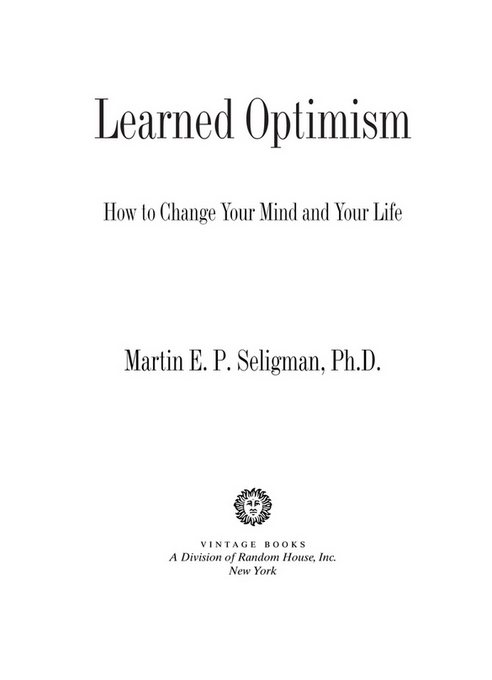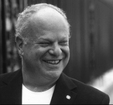
Martin E. P. Seligman, Ph.D.
Learned Optimism
Martin E. P. Seligman, Ph.D., professor of psychology at the University of Pennsylvania and a past president of the American Psychological Association is a leading motivational expert and an authority on learned helplessness. He is the director of the Positive Psychology Center at the University of Pennsylvania. His many books include Authentic Happiness and The Optimistic Child. Dr. Seligmans research has been supported by the National Institute on Mental Health, the National Institute on Aging, the National Science Foundation, the Department of Education, the MacArthur Foundation, the Templeton Foundation, and the Guggenheim Foundation.
ALSO BY MARTIN E. P. SELIGMAN, PH.D .
Learned Helplessness: A Theory for the Age of Personal Control
What You Can Change and What You Cant
Authentic Happiness
The Optimistic Child
FIRST VINTAGE BOOKS EDITION, JANUARY 2006
Copyright 1990, 1998, 2006 by Martin E. P. Seligman
All rights reserved. Published in the United States by Vintage Books, a division of Random House, Inc., New York, and in Canada by Random House of Canada Limited, Toronto. Originally published in hardcover in the United States by Alfred A. Knopf, a division of Random House, Inc., New York, in 1991, and subsequently published in different form by Free Press, New York, in 1998.
Vintage and colophon are registered trademarks of Random House, Inc.
Grateful acknowledgment is made to Liveright Publishing Corporation and Grafton Books for permission to reprint an excerpt from love is a place from No Thanks by e.e. cummings, edited by George James Firmage. Copyright 1935 by e.e. cummings. Copyright 1968 by Marion Morehouse Cummings. Copyright 1973, 1978 by the Trustees for the e.e. cummings Trust. Copyright 1973, 1978 by George James Firmage. Rights outside the U.S. and Canada administered by Grafton Books from Complete Poems Vol. I by e. e. cummings. Reprinted by permission of Liveright Publishing Corporation and Grafton Books, a division of the Collins publishing Group. Poem #254 from The Complete Poems of Emily Dickinson, edited by Thomas Johnson; Little, Brown and Company, Boston.
The Library of Congress has cataloged the Knopf edition as follows:
Learned optimism / Martin E. P. Seligman
p. cm.
I. Optimism. I. Title.
[BJ1477.S45 1992]
155.2_32dc20
91-34235
eISBN: 978-0-307-80334-4
Author photograph Kyle Cassidy ASC/Pandemon
www.vintagebooks.com
v3.1
This book is dedicated with optimism about our future to my newborn, Lara Catrina Seligman
Contents
Preface to the Vintage Edition
When I first began to work on learned optimism, I thought I was working on pessimism. Like almost all researchers with a background in clinical psychology, I was accustomed to focusing on what was wrong with individuals and then on how to fix it. Looking closely at what was already right and how to make it even better did not enter my mind.
The turning point was a meeting in 1988 with Richard Pine, the person who was destined to become my literary agent, intellectual advisor, and friend. I described my work on pessimism and Richard said, Your work is not about pessimism; its about optimism. No one had said this to me before. As I left his office, somewhat shaken, he called out, I pray youll write a book about this. They make religions out of this stuff!
I did. No religions sprouted up, but the book has sold steadily for fifteen years. And something did happen: Positive Psychology. In 1996, I was elected president of the American Psychological Association by what they tell me was the largest vote in history, thanks in part to the popularity of this book and the field of research that it spawned.
The president of the American Psychological Association is supposed to have an initiative, a theme of office, and as I looked over the modern history of psychology, I saw that Richard had given me my theme. Psychology now seemed half-baked to me. The half that was fully-baked was devoted to suffering, victims, mental illness, and trauma. Psychology had worked steadily and with considerable success for fifty years on the pathologies that disable the good life, which make life not worth living. By my count fourteen of the major mental illnesses are now treatable by psychotherapy or by medications, with two of them (panic disorder and blood and injury phobia) virtually curable. But clinical psychologists also began to find something disconcerting emerging from therapy: even on that rare occasion when therapy goes superbly and unusually well, and you help the client rid herself of depression, anxiety, and anger, happiness is not guaranteed. Emptiness is not an uncommon result. How can this be?
Curing the negatives does not produce the positives. In jargon, the correlation between sadness and happiness is not anything close to 1.00; it is more like 0.40. Strangely one can both be happy and sad (although not in the same instant). Women, in fact, being more emotionally labile, are both happier and sadder than men. The skills of becoming happy turn out to be almost entirely different from the skills of not being sad, not being anxious, or not being angry. Psychology had told us a great deal about pathology, about suffering, about victims, and how to acquire the skills to combat sadness and anxiety. But discovering the skills of becoming happier had been relegated to amusement parks, Hollywood, and beer commercials. Science had played no role.
When you lie in bed at night and contemplate your life and the lives of the people you love, you are usually thinking about how to go from +2 to +6, not how to go from 5 to 2. But at its best, psychology had only told us how to relieve misery, not how to find what is best in life and live it accordingly. This was the unbaked half that would become Positive Psychology.
Learned Optimism is the foundation of my thinking about Positive Psychology, and it is the first of the triptych that leads there. In 1996, I published The Optimistic Child, which applies the knowledge and the skills you will read about in this volume to teenagers and schoolchildren. In 2002, I published the third book of the series: Authentic Happiness. This book sets forward a larger theory about the positive side of life: happiness is a scientifically unwieldy notion, but there are three different forms of it you can pursue. For the Pleasant Life, you aim to have as much positive emotion as possible and learn the skills to amplify positive emotion. For the Engaged Life, you identify your highest strengths and talents and recraft your life to use them as much as you can in work, love, friendship, parenting, and leisure. For the Meaningful Life, you use your highest strengths and talents to belong to and serve something you believe is larger than the self.
Learned Optimism can set you on the path to any or all three forms of happiness. The skills you will read about here can increase the duration and intensity of your positive emotions. These skills can enable you to use your highest strengths and talents more effectively. Finally, optimism is invaluable for the meaningful life. With a firm belief in a positive future you can throw yourself into the service of that which is larger than you are.


